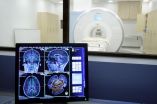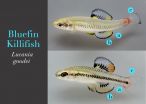(Press-News.org) A new study, which may have implications for approaches to education, finds that brain mechanisms engaged when people allow their minds to rest and reflect on things they've learned before may boost later learning.
Scientists have already established that resting the mind, as in daydreaming, helps strengthen memories of events and retention of information. In a new twist, researchers at The University of Texas at Austin have shown that the right kind of mental rest, which strengthens and consolidates memories from recent learning tasks, helps boost future learning.
The results appear online this week in the journal Proceedings of the National Academy of Sciences.
Margaret Schlichting, a graduate student researcher, and Alison Preston, an associate professor of psychology and neuroscience, gave participants in the study two learning tasks in which participants were asked to memorize different series of associated photo pairs. Between the tasks, participants rested and could think about anything they chose, but brain scans found that the ones who used that time to reflect on what they had learned earlier in the day fared better on tests pertaining to what they learned later, especially where small threads of information between the two tasks overlapped. Participants seemed to be making connections that helped them absorb information later on, even if it was only loosely related to something they learned before.
"We've shown for the first time that how the brain processes information during rest can improve future learning," says Preston. "We think replaying memories during rest makes those earlier memories stronger, not just impacting the original content, but impacting the memories to come."
Until now, many scientists assumed that prior memories are more likely to interfere with new learning. This new study shows that at least in some situations, the opposite is true.
"Nothing happens in isolation," says Preston. "When you are learning something new, you bring to mind all of the things you know that are related to that new information. In doing so, you embed the new information into your existing knowledge."
Preston described how this new understanding might help teachers design more effective ways of teaching. Imagine a college professor is teaching students about how neurons communicate in the human brain, a process that shares some common features with an electric power grid. The professor might first cue the students to remember things they learned in a high school physics class about how electricity is conducted by wires.
"A professor might first get them thinking about the properties of electricity," says Preston. "Not necessarily in lecture form, but by asking questions to get students to recall what they already know. Then, the professor might begin the lecture on neuronal communication. By prompting them beforehand, the professor might help them reactivate relevant knowledge and make the new material more digestible for them."
INFORMATION:
This research was conducted with adult participants. The researchers will next study whether a similar dynamic is at work with children.
This work was supported by the National Institute of Mental Health of the National
Institutes of Health, the National Science Foundation (NSF) through the NSF CAREER Award and the Department of Defense through the National Defense Science and Engineering Graduate Fellowship Program.
Download the article "Memory reactivation during rest supports upcoming learning of related content" (PNAS Oct. 20, 2014): http://www.pnas.org/content/early/2014/10/15/1404396111.full.pdf+html
ANN ARBOR, Mich. — Scientists have restored the hearing of mice partly deafened by noise, using advanced tools to boost the production of a key protein in their ears.
By demonstrating the importance of the protein, called NT3, in maintaining communication between the ears and brain, these new findings pave the way for research in humans that could improve treatment of hearing loss caused by noise exposure and normal aging.
In a new paper in the online journal eLife, the team from the University of Michigan Medical School's Kresge Hearing Research Institute and ...
PHILADELPHIA – Blue light can both set the mood and set in motion important biological responses. Researchers at the University of Pennsylvania's School of Medicine and School of Arts and Sciences have teased apart the separate biological responses of the human eye to blue light, revealing an unexpected contest for control. Their work addresses the properties of melanopsin, a light-sensitive protein in the eye that establishes the rhythm of our day-night cycle and the familiar constriction of the pupil to bright light. They measured the pupil response to stimulation ...
WASHINGTON, DC – October 20, 2014 -- Lactobacillus species, commonly seen in yogurt cultures, correlate, in the guts of mouse models, with mitigation of lupus symptoms, while Lachnospiraceae, a type of Clostridia, correlate with worsening, according to research published ahead of print in Applied and Environmental Microbiology. "Our results suggest that the same investigation shold be performed in human subjects with lupus," says principal investigator Xin Luo of Virginia Tech, Blacksburg, VA.
In the study, the investigators first showed that mouse models of lupus ...
Tropical Storm Gonzalo strengthened into a hurricane on Oct. 14 when it was near Puerto Rico and provided a natural laboratory for the next phase of NASA's HS3 or Hurricane and Severe Storm Sentinel mission.
The WB-57 aircraft flew over Hurricane Gonzalo on Oct. 15 carrying two HS3 mission instruments called HIWRAP and HIRAD in addition to a new Office of Naval Research sponsored dropsonde system.
The WB-57 is a mid-wing, long-range aircraft capable of operation for extended periods of time from sea level to altitudes in excess of 60,000 feet. Two crew members are positioned ...
For treating patients with prescription opioid dependence in primary care, buprenorphine maintenance therapy is superior to detoxification, according to a new study by Yale School of Medicine researchers published in the Oct. 20 issue of JAMA Internal Medicine.
Prescription opioid dependence has been increasing for the last 15 years and now surpasses heroin dependence. Doctors are also writing more prescriptions for pain management, which has led to higher experimentation and addiction rates, according to lead author David Fiellin, M.D., professor of internal medicine ...
Scientists have developed new geochemical tracers that can identify hydraulic fracturing flowback fluids that have been spilled or released into the environment.
The tracers have been field-tested at a spill site in West Virginia and downstream from an oil and gas brine wastewater treatment plant in Pennsylvania.
"By characterizing the isotopic and geochemical fingerprints of enriched boron and lithium in flowback water from hydraulic fracturing, we can now track the presence of 'frac' fluids in the environment and distinguish them from wastewater coming from other ...
LIVERMORE, Calif. – New medications created by pharmaceutical companies have helped millions of Americans alleviate pain and suffering from their medical conditions. However, the drug creation process often misses many side effects that kill at least 100,000 patients a year, according to the journal Nature.
Lawrence Livermore National Laboratory researchers have discovered a high-tech method of using supercomputers to identify proteins that cause medications to have certain adverse drug reactions (ADR) or side effects. They are using high-performance computers ...
Preexisting differences in the sensitivity of a key part of each individual's immune system to stress confer a greater risk of developing stress-related depression or anxiety, according to a study conducted at the Icahn School of Medicine at Mount Sinai and published October 20 in the Proceedings of the National Academy of Sciences (PNAS).
Inflammation is the immune system's response to infection or disease, and has long been linked to stress. Previous studies have found depression and anxiety to be associated with elevated blood levels of inflammatory molecules ...
CHAMPAIGN, Ill. — They help fish swim, but fins also advertise a fish's social standing and health. In a new study, researchers report that for the male bluefin killifish (Lucania goodei), each colorful fin presents its own messages to other fish.
Researchers report their findings in the journal Behavioral Ecology.
They're called "bluefin" killifish, but the first thing University of Illinois animal biology professor Rebecca Fuller noticed while she was snorkeling in a Florida stream was the killifishes' differently colored fins. In addition to having reflective ...
Fairfax, Va., October 20, 2014—Tumor laterality (left-side vs. right-side) does not impact overall survival in breast cancer patients treated with breast-conserving surgery and adjuvant external beam radiation therapy, according to a study published in the October 1, 2014 issue of the International Journal of Radiation Oncology • Biology • Physics (Red Journal), the official scientific journal of the American Society for Radiation Oncology (ASTRO).
Studies have shown that breast cancer patients treated with radiation therapy have improved local-regional recurrence, ...





